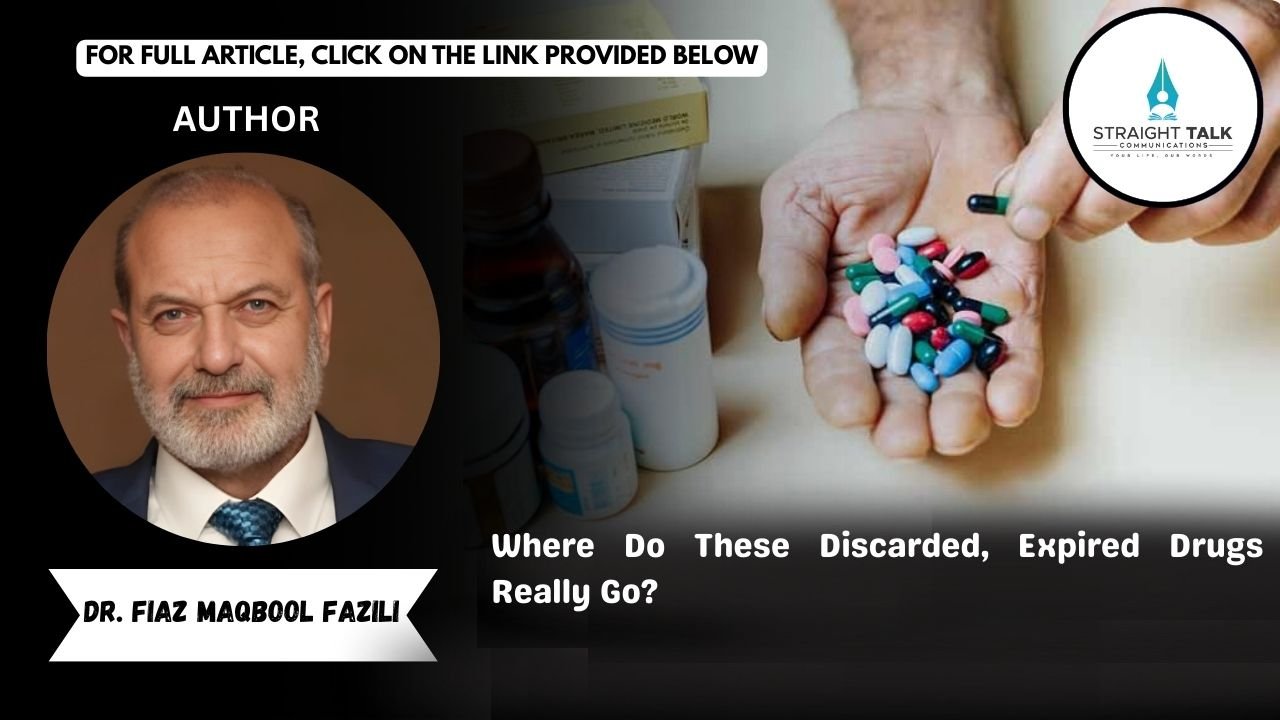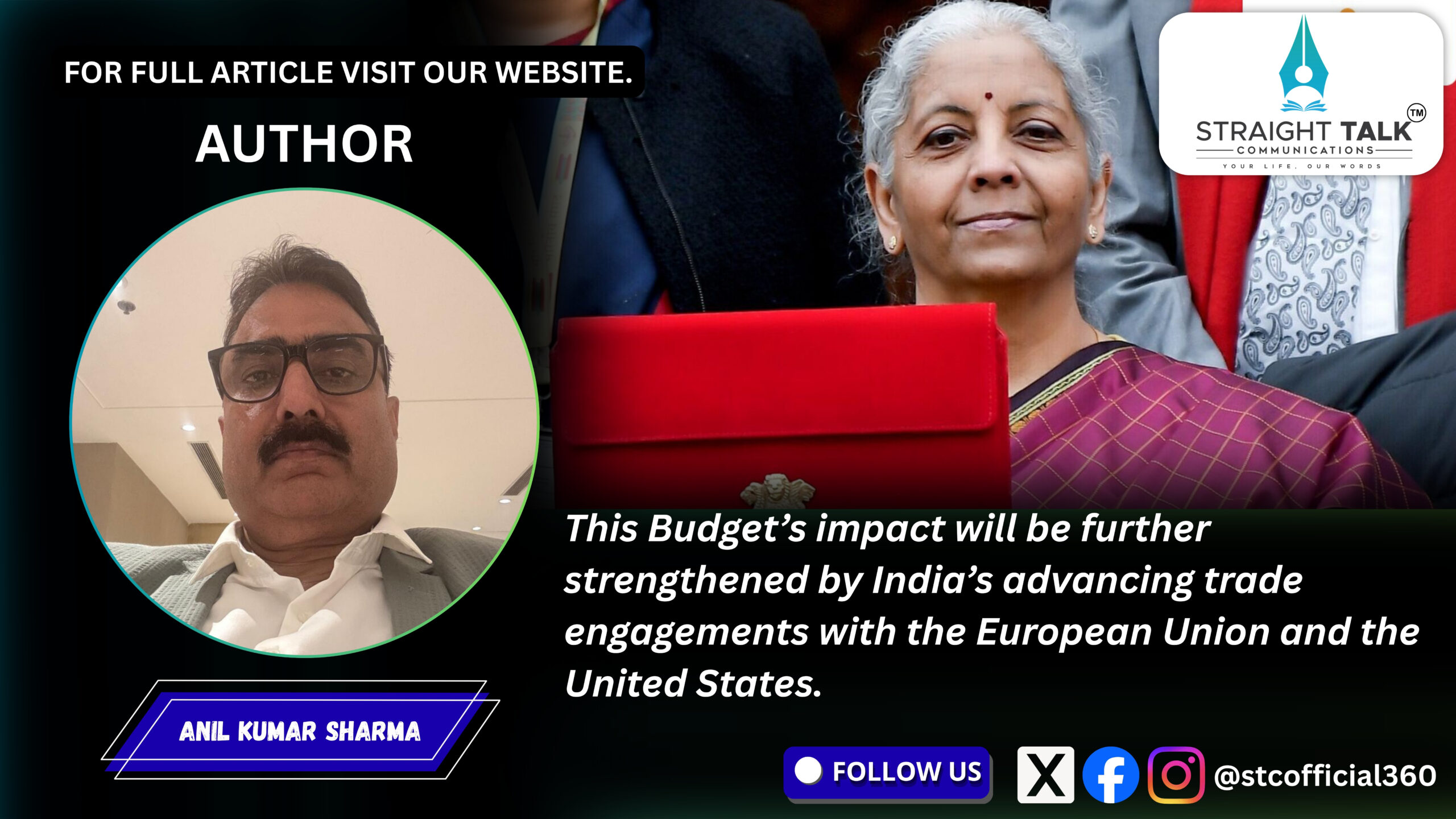Poison of Expired Medicines!

Where Do These Discarded, Expired Drugs Really Go?
Dr. Fiaz Maqbool Fazili
The recent case of a child in Kashmir nearly losing her eyesight after being administered expired medicine is not an isolated incident. Dr. Syed (name changed) told me that he had visited a pharmacy to purchase antibiotics for his sore throat. Upon reaching home, he discovered that the medicine had expired two months earlier. Having already consumed one capsule, he became anxious—not merely about whether a single dose could harm him, but about the broader concern: is it ethical, legal, or moral for a pharmacy to sell expired medicine?
It is not merely an oversight. It is a symptom of a deep, festering rot within a system that has, for decades, prioritized profit over human life. To call it a “scam” is to misunderstand its nature; this is a highly organized, deeply entrenched business conducted with impunity under the nose of authorities who have, through acts of both commission and omission, become complicit in this moral crime.
The incident itself is every parent’s worst nightmare. A child, trusting the healthcare system, is given a remedy that turns into a poison. But behind this single, heartbreaking event lies a cold, calculated supply chain. Expired medicines do not magically appear on pharmacy shelves. Their journey involves deliberate acts: someone must retrieve them from designated disposal bins, someone must erase or alter the expiry dates, a distributor must agree to recirculate them, and a chemist must willingly place them back on the rack to be sold. This is not a loophole; it is a protocol. It is an industry that thrives because the risk is negligible and the rewards are high, leaves us with a bigger question, Is there any Deadly Commerce of Expired Medicines in Kashmir…only concerned departments like Drug controllers can clarify and reassure that these incidents are human oversight not an established illegal trade.
The Facade of Regulation and the Failure to “Bell the Cat”-The phrase “nobody is going to bell the cat” is painfully apt. Regulatory bodies —the Drug and Food Control Organization, must be conducting periodic inspection regimes, and strict guidelines are all part of the rulebook. Yet, the incident of “child getting expired drug,”and my colleague Dr . SAQ ( name held) getting expired antibiotic are realities . Even if we consider these as a few isolated adverse event points to a catastrophic failure of enforcement, a blatant disregard for public safety. The “cat”—a powerful syndicate of unscrupulous elements within the pharmaceutical distribution network—is known, yet it remains unbelled.. Meanwhile, the ultimate shield for this malfeasance is the suffering and ignorance of the patient. In a region grappling with conflict and a strained healthcare system, a patient’s primary concern is access and affordability. The fine print on a medicine strip is often the last thing on their mind. This vulnerability is exploited with chilling efficiency.
The “5 Rights” of safe dispensing—Right Patient, Right Medicine, Right Dose, Right Route, and Right Time—are core to pharmacy ethics but often ignored in today’s profit-driven chaos. An expired drug, though correct in every other way, becomes toxic and ineffective, turning negligence into poisoning. Patients must verify these “Rs” before leaving the counter. Adding a 6th Right—the Right Bill—is vital to combat overcharging and hidden costs that push families toward financial ruin. These “6 Rs” (including Expiry Check and Right Bill) must be mandated, visibly displayed at all pharmacies, and strictly enforced as both a duty of dispensers and a right of patients.
Expired Drugs and the Disposal Black Hole-Where Do These discarded, expired drugs actually go ?
This question has long baffled me. Are they sometimes brought back to the market with renewed packings, changed labels altered to deceive patients? Allah knows best, but experts and honest traders in this business warn that the risk is real. Once drugs slip out of regulated disposal systems, they may reappear in informal markets—stripped of their expiry dates and sold again to the unsuspecting by unscrupulous dishonest inhumane person’s in medicine trade.
Rule 65(17) of the Drugs Rules, 1945, clearly prohibits the storage or sale of expired drugs. Expired stock must be segregated from trade stock. The Bio-Medical Waste Management Rules, 2016, prescribe how hospitals and pharmacies must dispose of such drugs, typically through incineration or return to manufacturers.Proper disposal is, therefore, not a minor detail but a life-and-death safeguard. When these safeguards fail, both public health and the environment suffer. Responsible disposal is our shared duty—to patients, to society, and to future generations.
And yet, where do these discarded drugs often land? Not in regulated facilities, but back in the informal black market. A review of India’s drug disposal system by Biplab Lenin and colleagues (2025) highlights glaring gaps: End-consumers are outside the ambit of disposal rules; households simply throw expired medicines into bins, where they are retrieved and resold.Reverse logistics—from retailer back to wholesaler and manufacturer—exists on paper but fails in practice. Records are poorly kept, and expired stock “leaks” back into circulation. Local “drug take-back” programs, such as Kerala’s volunteer model, remain isolated exceptions, not nationwide norms.Improper disposal is not only a resale risk but also an environmental hazard. Antibiotics flushed into rivers accelerate antimicrobial resistance. Hormonal drugs leach into groundwater, disrupting ecosystems. A pill tossed casually into the trash may end up poisoning both humans and nature.
Harm Beyond the Scandal: The sale of expired drugs is only one part of a much larger web of exploitation by “spurious .low quality medicines within the pharmaceutical ecosystem deserves separate piece to highlight . This network thrives on price inflation and profit-driven malpractice involving multiple players: pharmaceutical companies that evergreen old drugs to extend patents and raise costs; doctors who accept incentives to prescribe expensive brands over affordable generics; distributors who hoard stock to create artificial shortages; and chemists who push high-margin brands or even expired stock. Each takes a share, while patients bear the true cost—sometimes with their lives. When families cannot afford full treatment due to inflated prices, it becomes a slow, systemic form of harm—a bureaucratic death. The watchword is caution.
A Call for Systemic Overhaul-The child in Kashmir must not become another statistic. Her suffering should be the catalyst that forces us to finally bell the cat. This requires not sympathy, but structural reform:Zero-Tolerance Enforcement-Surprise inspections, hefty fines, cancellation of licenses, and criminal prosecution for selling expired drugs.Treating such acts as attempted murder, not minor lapses.Mandating the 6 Rs-Every pharmacy must display and follow the “6 Rs of Dispensing.”Verbal expiry date confirmation by pharmacists must be made compulsory.Transparency in Pricing-Enforcement of NPPA guidelines on drug pricing.Digital public portals listing MRPs to empower patients.Public Awareness-Campaigns urging citizens to check expiry dates, demand bills, and report malpractice.Drug take-back programs run jointly by local governments and civil society.
Major pickups : Stop the Business of Selling Death.
The commerce of expired and overpriced medicines is not just malpractice—it is the business of selling death and destruction. It thrives because of collusion, weak oversight, and public ignorance. It thrives because nobody wants to “bell the cat.”But the stakes are no longer abstract. A child nearly lost her eyesight. Tomorrow, it could be your child, my patient, or a loved one.To end this deadly trade, we must enforce the law with iron fists, protect whistleblowers, empower patients, and demand accountability from every link in the chain. Medicines are meant to heal, not to kill. To allow this commerce of poison to continue is to surrender our humanity at the altar of greed.The choice before us is clear: we either confront this moral crime head-on, or we remain silent accomplices. And silence, in this case, is no less deadly than the poison itself.
(AUTHOR is practicing Surgeon and Certified Expert in Healthcare Quality & Patient Safety Standards)







